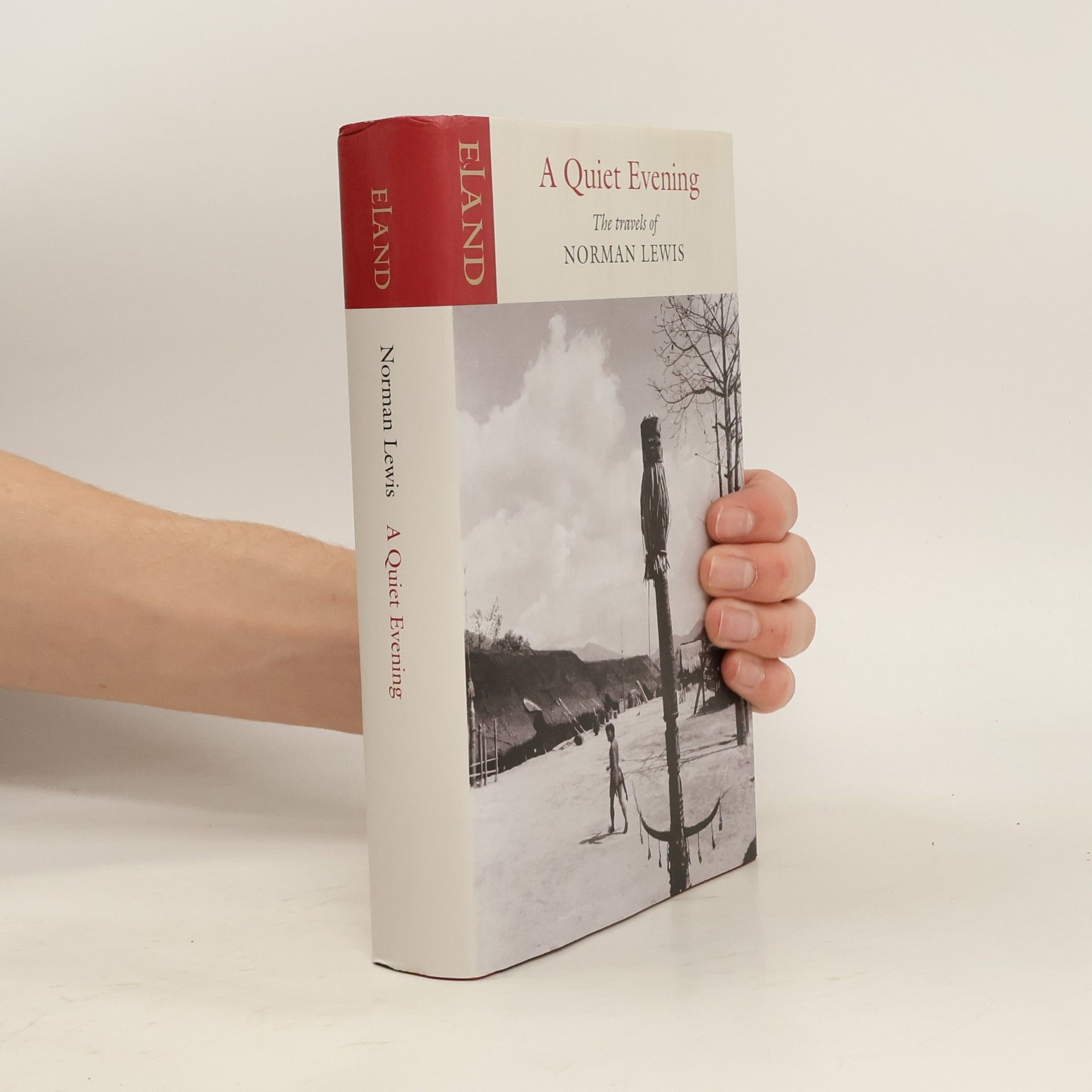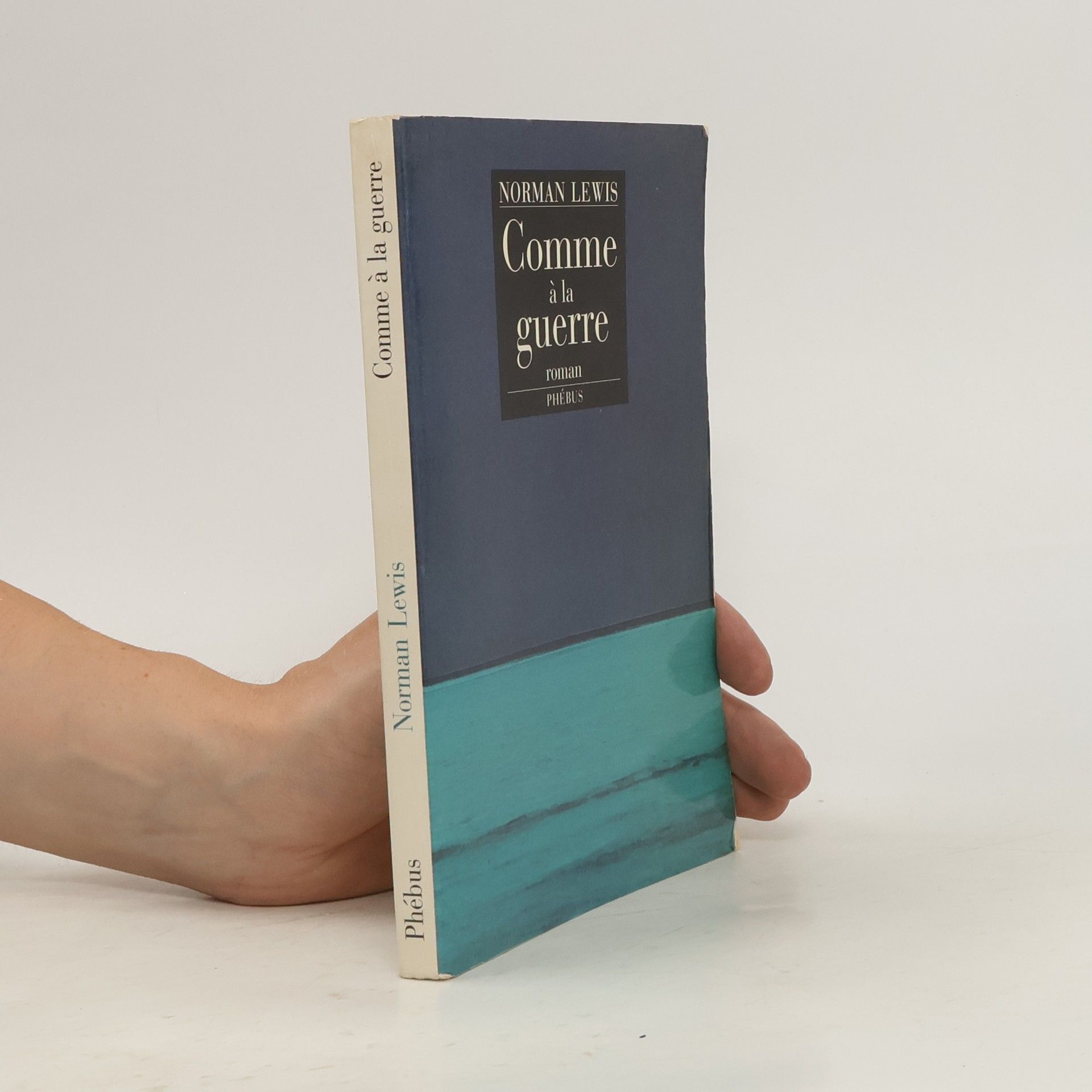Comme à la guerre
- 186pages
- 7 heures de lecture
Norman Lewis était un auteur britannique dont les récits de voyage sont une leçon magistrale de réalisme observationnel et de profonde perspicacité humaine. Avec une curiosité intrépide et un œil vif pour le détail, Lewis a exploré des cultures à l'aube de la modernité, capturant leurs complexités avec empathie et objectivité. Ses œuvres abordent des thèmes complexes tels que l'impact du colonialisme, les bouleversements politiques et le choc entre tradition et modernité. Le style distinctif de Lewis, qui évite le sensationnalisme au profit de l'observation incisive, en fait une lecture essentielle pour quiconque est fasciné par la condition humaine.







The most effective English language vocabulary builder available: this time-tested classic has helped millions achieve mastery of English and improve their communications skills in business, the classroom, and in life. Word Power Made Easy provides a simple, step-by-step method for increasing knowledge and mastery of the language. Arranged in thematic sections—on everything from how to flatter friends and insult enemies to how to talk precisely about science and medicine—the book is written in a lively, accessible, and often humorous style, presenting ideas and a method of broadening your knowledge as an integral part of vocabulary-building. The author delves into etymology to arm the reader to decode unfamiliar words, provides phonetic pronunciations, gives tips on avoiding common spelling errors, and offers useful sections on which fussy, old-fashioned grammar rules are valid and which are outdated or misguided and can be safely ignored. Loaded with helpful reviews, progress checks, and quizzes to reinforce the material, this classic resource—first published sixty years ago—has helped millions learn to speak and write with greater sophistication.
Exercises designed to develop vocabulary skills present words together with their pronunciations, definitions and use in sentences
Describes the Costa Brava, a place where men regulated their lives by the sardine shoals of spring and autumn and the tuna fishing of summer, and where women kept goats and gardens, arranged marriages and made ends meet.
This collection showcases the literary contributions of Norman Lewis, curated by John Hatt, the founder of Eland. It highlights Lewis's unique perspectives and storytelling style, emphasizing his explorations of diverse cultures and experiences. The selection reflects Lewis's ability to capture the essence of the places he visited, making it a compelling read for those interested in travel literature and cultural narratives.
Brings together a lifetime's experience of travelling in tribal lands in a searing condemnation of the lethal impact of North American fundamentalist Christian missionaries on aboriginal life throughout the world.
As a young intelligence officer stationed in Naples following its liberation from Nazi forces, Norman Lewis recorded the lives of a proud and vibrant people forced to survive on prostitution, thievery, and a desperate belief in miracles and cures. The most popular of Lewis’s twenty-seven books, Naples ’44 is a landmark poetic study of the agony of wartime occupation and its ability to bring out the worst, and often the best, in human nature. In prose both heartrending and comic, Lewis describes an era of disillusionment, escapism, and hysteria in which the Allied occupiers mete out justice unfairly and fail to provide basic necessities to the populace while Neapolitan citizens accuse each other of being Nazi spies, women offer their bodies to the same Allied soldiers whose supplies they steal for sale on the black market, and angry young men organize militias to oppose "temporary" foreign rule. Yet over the chaotic din, Lewis sings intimately of the essential dignity of the Neapolitan people, whose traditions of civility, courage, and generosity of spirit shine through daily. This essential World War II book is as timely a read as ever.
The second part of Norman Lewis's autobiography/travel memoir. In this work, Lewis recalls his time in the Far East, his meeting with Ernest Hemingway, his time in the fishing village of Farol in Spain and an account of a journey with Lord Snowdon.
Photographs depict the people, landscapes, cultures, festivals, and architecture of Myanmar, also known as Burma
Despite communist incursions and tribal insurrection, Norman Lewis describes a land of breath-taking natural beauty peopled by the gentle Burmese. This is a country where Buddhist beliefs spare even the rats, where the Director of Prisons quotes Chaucer and where three-day theatrical shows are staged to celebrate a monk taking orders. Hitching lifts with the army and with travelling merchants, Lewis is treated to hospitality wherever he stops in this war-torn land, and reveals a country where 'the condition of the soul replaces that of the stock markets as a topic for polite conversation'.